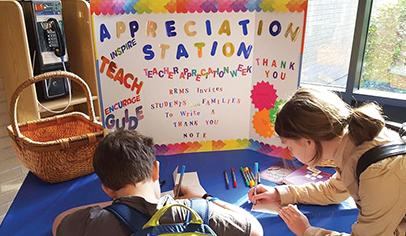I don’t know a single person who saw the devastation in the Gulf Coast in August 2005 who didn’t want to ease the suffering in some way. The desire to assist couldn’t be easily satisfied by dashing off a check to the Red Cross. It was near physical in its intensity, a deep-in-the-bones call to help that could only be quieted by direct action: clearing downed trees, ministering to the sick and dying, gazing into the eyes of the terrified and assuring them that, yes, things will one day be right again. It was the same impulse that causes us instinctively to scoop up a child who has fallen or touch the arm of an elderly person who appears confused. Except in this case, aiding the afflicted wasn’t so easy.
Those of us who lack relevant training or skills knew the most helpful thing we could do was indeed to write that check to a relief organization. And certainly, many of us did. But that didn’t satisfy our need to connect on a human level with the victims. I think that’s why, despite the countless relief organizations accepting donations, people around the nation responded with grass-roots efforts. These efforts not only supplemented the work of the larger nonprofits but also allowed their organizers and donors to express their compassion with an intimacy not possible in a check or an online donation.
Not surprisingly, parent groups around the country were among the first to step up for the cause. In communities where the displaced sought refuge, PTOs secured emergency housing, hosted welcome coffees for parents, organized clothing drives, and amassed school supplies. Elsewhere, parent groups have conducted coin drives, collected backpacks and buckets stuffed with necessities, and more.
PTOs are uniquely equipped to respond to a crisis. They are ready-made organizations capable of carrying out just about any mission. They’re run by people who are organized, skilled, creative, and accustomed to doing a lot with very little. And PTOs enjoy strong personal networks, which are essential when large numbers of people need to be mobilized on short notice.
In a recent article in the New Yorker, writer Malcolm Gladwell describes the power of the small group as evidenced in the wildly successful Saddleback Church in Orange County, Calif. The church, founded 25 years ago with a bible study group of seven individuals, today has an average attendance of more than 20,000. The backbone of the church is its thousands of study groups, each consisting of six or seven people who meet weekly for worship and prayer. This “cellular” model gives people a sense of community and exclusivity at the same time; they feel part of something larger than themselves, yet intimately connected with their fellow members.
If you put the nation’s parent groups together, you end up with a similar cellular phenomenon: thousands of people operating in small social settings where they’re allowed and encouraged to express their charitable impulses. Collectively, their accomplishments are astonishing.
We’re not accustomed to thinking of PTOs as interconnected, partly because each one is focused inward on its own school. But as we’ve seen in the weeks since Hurricane Katrina, parent-teacher groups will use their assets to help anyone in need, regardless of where they go to school.























